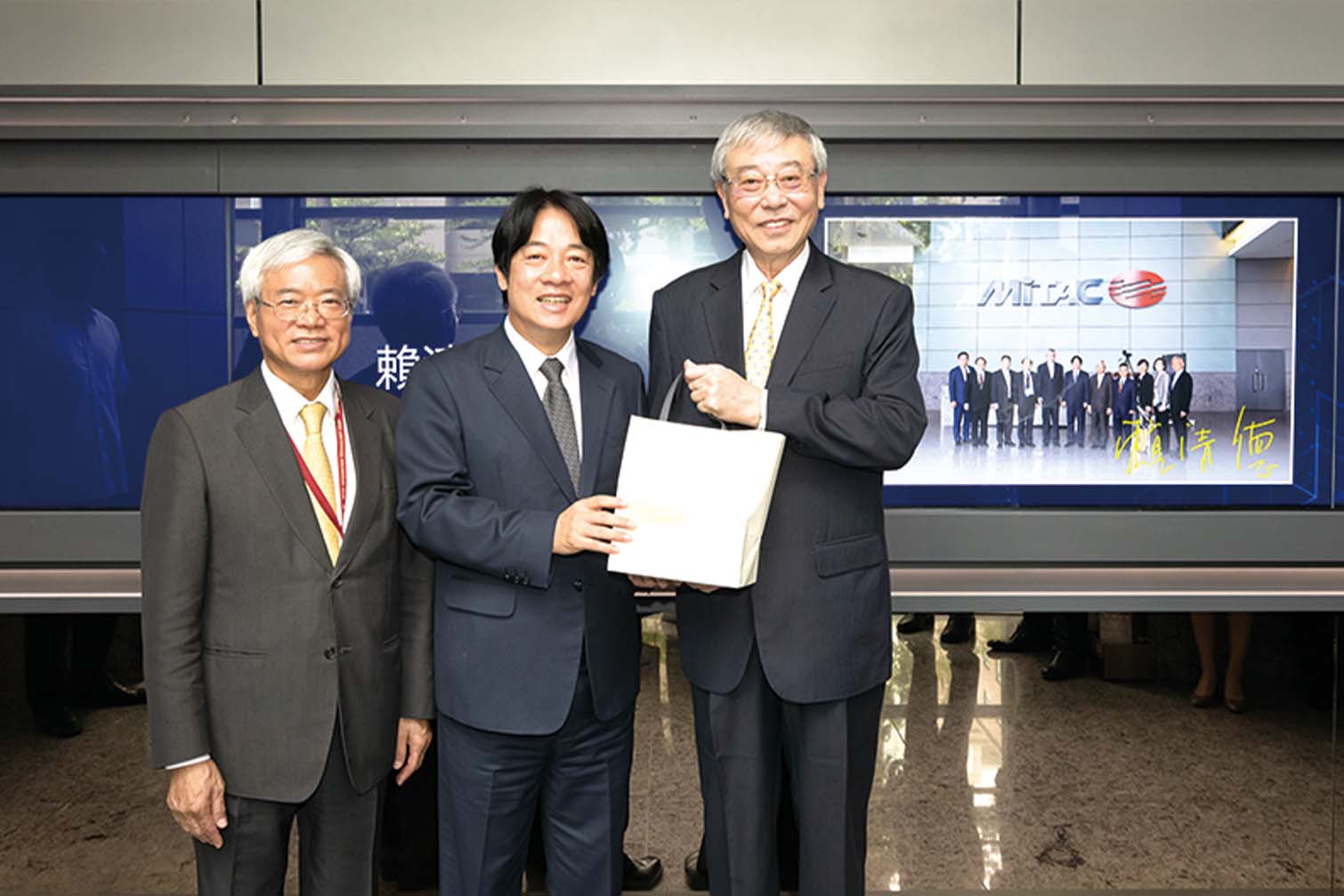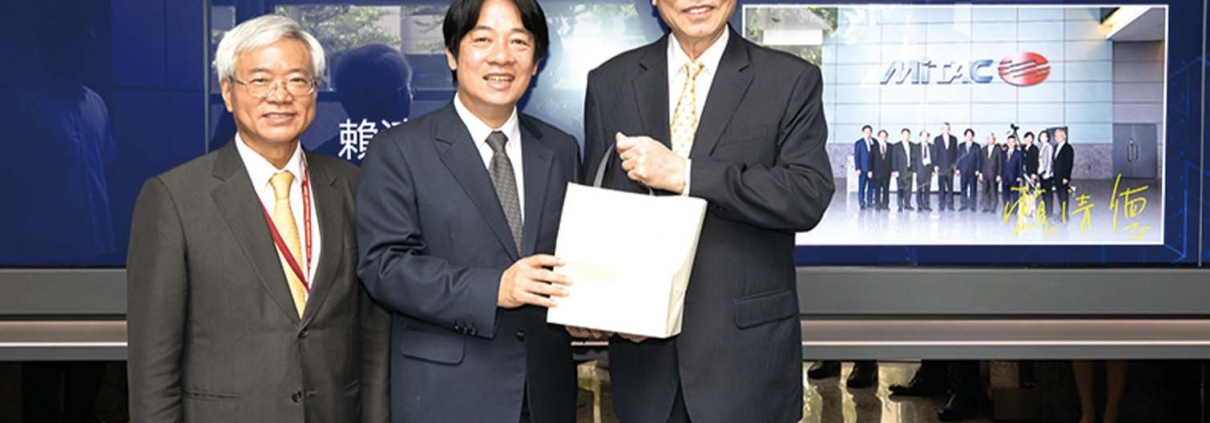Vice President Ching-Te Lai Pays A Visit to MiTAC

Vice President Lai recently visited MiTAC, accompanied by Feng-Chiang Miao (chairman of MiTAC-SYNNEX Group) and Liang Su (convener of the Supervisory Board of Taipei Computer Association and chairman of MiTAC), to gain a deeper understanding of MiTAC’s successful case in smart transportation, smart healthcare, smart education and e-government. Chairman Su made 3 suggestions about how Taiwan’s information and communication industry will take the next step and enter the global market. Chairman Su and Vice President Lai also exchanged views.
Vice President Lai, Mr. Miao and Mr. Su first visited the multimedia exhibition hall and the creative base in the head office, observing MiTAC’s milestones over the past 40 years. Chin-Sheng Chiu, (Vice President of MiTAC’s Innovation Technology Business Group) and Yu-Cheng Ting (Vice President of Cloud Platform and Agency Business Group) also briefed their guests on the MiTAC’s latest R&D technologies and practical applications and overseas achievements. Vice President Lai was very interested in the application of transportation and asked many questions, demonstrating his commitment to this “learning experience.” He joked and said: “When it comes to smart cities, the capability of MiTAC is without boundaries.”
Chairman Miao responded: “MiTAC is the first Taiwanese computer company to have introduced industrial automation, office automation and informationization of police, land administration, household registration, finance, education and health. It plays a crucial part in Taiwan’s move from computer business to computer industry,” “Now, MiTAC is proactively working on constructing an eco-system in smart cities for Taiwan to improve the industrial chain, which will become an opportunity for Taiwan’s future development.”
With his years of experience in the development of smart cities, Chairman Su suggested to Vice President Lai that the government should provide help to the industry in establishing a “national-level system integration platform,” allowing the project foundation to be built on “comprehensive” fields. For example: establishing complete supply chains or fields that can be integrated and managed and allow system integrators to take the lead in developing sustainable and highly replicable software, hardware and application services. The government should also provide long-term support to application service vendors with strategy, ensuring sustainability development.
Taiwan already has a mature technology environment, and through system integration, small and medium-sized precision industries can enter the international market and showcase Taiwan’s soft power in technology applications. As we are now at a crucial moment in developing the technology industry, the government should use the integration strengths of SI vendors to play a flagship role, leading Taiwan’s sectors in expanding into overseas markets.




